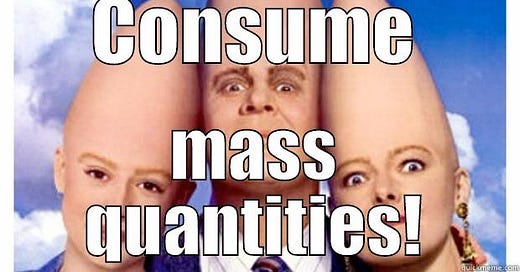“Markets are great… if you have money to spend.” It’s one of the world’s top back-handed compliments. After conceding that markets treat the rich well, after conceding that markets even treat the middle-class well, it shines a sad spotlight on the plight of the poor. What do markets have to offer people with nothing to spend?
Some easy responses:
“Poor” is relative. Almost no one literally has “nothing to spend.” When the stores are bursting with consumer goods, a little cash goes a long way.
This is even clearer when you remember that credit markets allow us to borrow against future earnings. They don’t have to be textbook “perfect credit markets” to be extremely helpful.
Markets aren’t just places to spend money. They are places to make money, because markets make even modest talents highly productive. As I explain in Open Borders, that’s why billions globally want to move to the world’s most market-oriented countries.
Market-oriented societies are richer, and richer societies are more charitable, at least measured by total giving. So even if you lack both current money and future earnings, you’re better-off in a market-oriented society.
If you’ve ever been poor, however, you’ll notice that these talking points overlook a big strange fact about markets. Namely: Markets provide a long list of amazing products free of charge. To start:
You can walk around almost any mall in the First World for free, enjoying free air conditioning in the summer, free heating in the winter, and a beautiful, clean, safe indoor city year-round.
You can read unlimited books in almost any bookstore in the First World for free, often while seated in luxury furniture. Free wi-fi is often included.
You can relax in almost any hotel lobby in the First World for free. Free wi-fi is, once again, often included.
You can use this free wi-fi to consume the cornucopian cultural treasures of mankind on YouTube and hundreds of other streaming sites. While they do have paying customers, “freemium” is the default business model.
The same goes for a great many videogames. You can spend piles of money, but you can also consume mass quantities for no money at all.
What do all of these freebies have in common? In textbook terms, all of these gratis goods are non-rival, or nearly so. The extra cost of welcoming a penniless visitor to the mall to enjoy free air conditioning is roughly zero. Since demanding proof-of-funds alienates paying customers, extreme inclusivity is usually profit-maximizing. “I’m sorry, sir, but I have to ask you to leave”: Unless you’re blatantly homeless, no store employee will ever direct such words in your direction.
You could argue that stores adopt “Come one, come all” policies because they fear discrimination lawsuits. But that’s a marginal factor at most. Even under current law, there’s nothing stopping businesses from imposing dress codes on their customers. Indeed, a few fancy restaurants still maintain such codes. But this is extraordinarily rare. Why? Because money’s money - and most patrons obliviously ignore one another.
Until I became a professor, I rarely spent money on anything. I was poor, and I was cheap. But I still enjoyed access to a fine menu of free consumer goods. With the internet, that menu has grown by leaps and bounds. Yet instead of voicing gratitude, most of us take this bounty for granted. We should be grateful instead. Grateful for ourselves - and grateful for us all.
Subscribe to Bet On It
Caplan and Candor
















I have always thought that by focusing on income or wealth--e.g., the power to purchase rival goods--we've overlooked the importance of nonrival goods on people's well-being. A poor kid who lives next to a library and a park is much better off than a poor kid who does not. And yet, giving kids access to libraries and parks doesn't move the needle if you're only focusing on income.
However, I find the specific examples mostly bizarre. Yes, the market provides ubiquitous wifi and free video games and in this way the market provides for the poor. But most of these examples assume a large, anonymous community. If you live near one or two stores, you can loiter for a while but eventually people will learn you're not spending much money.
If a lot of non-payers begin to use the nonrival good, stores can and do make choices to turn their nonrival goods rival--requiring bathroom keys, sharing wifi passwords only with paying customers, requiring hotel keys to get into the lobby, or simply asking loiterers to leave. In these scenarios, poor folks benefit from nonrival goods provided by the market only if a preponderance of people are payers.
The truly poor people I know would not recognize the world you're describing. They would not feel comfortable sitting in the lobby of a Four Seasons as one example. And being truly poor is extremely time consuming.
I found this post highly perplexing, as in if this is his worldview, how can I have confidence in other posts.